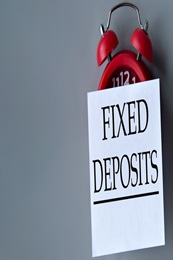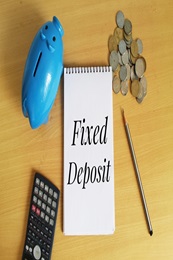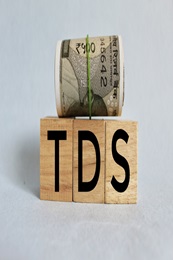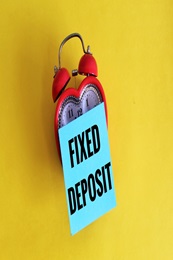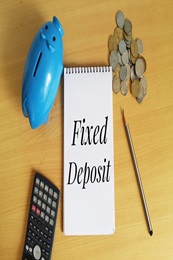Fixed Deposit vs Certificate of Deposit: A Comprehensive Guide
April 15, 2025
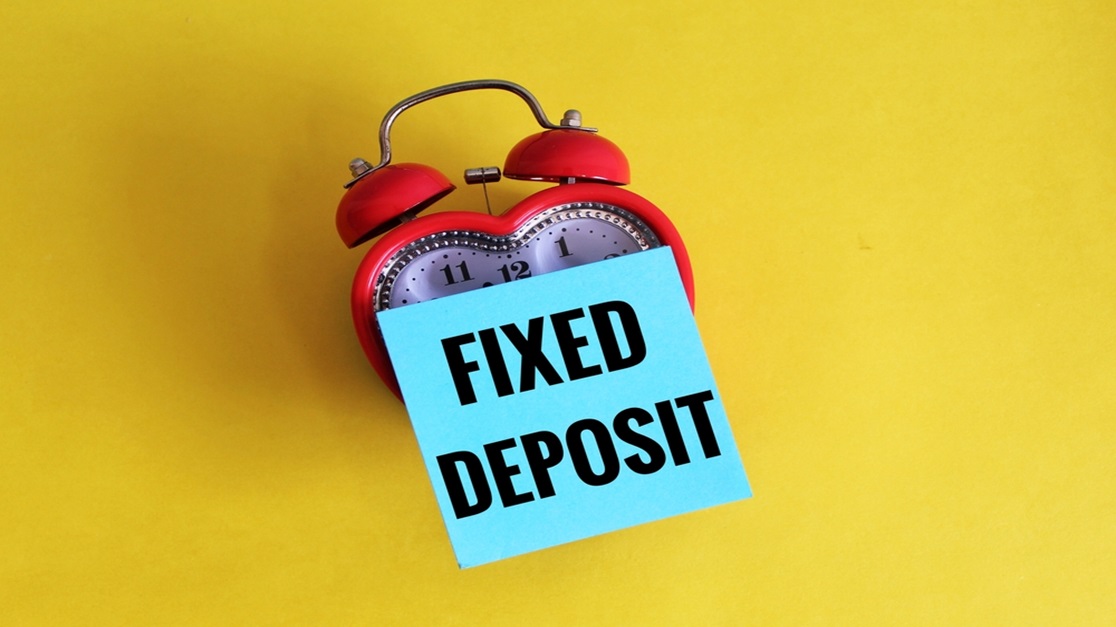
Fixed Deposits (FDs) and Certificates of Deposit (CDs) are two popular time-deposit investment options offering fixed returns. While both are low-risk instruments, they cater to different needs and investor profiles. This article delves deep into the nuances of FDs and CDs, helping you decide the right choice for your financial goals.
What is a Fixed Deposit (FD)?
A Fixed Deposit is a financial instrument provided by banks and financial institutions. For FDs, you need to deposit an amount, generally starting from 1,000, for a fixed tenure. It’s a one-time investment, wherein you deposit the amount and receive interest pay-outs either monthly, quarterly, half-yearly, annually or at maturity, based on the interest pay-out option selected by you.
The interest rate remains fixed throughout the tenure and is calculated based on the compound interest method. With banks like Ujjivan, you can enjoy higher returns, up to 8.25%* p.a. on your FD investment. The tenure generally ranges from 7 days to 10 years. In case of cash crunch, you can either opt for premature withdrawal, or can avail a loan or overdraft against FD.
FDs are a go-to choice for conservative investors seeking stable returns over short or long periods.
What is a Certificate of Deposit (CD)?
Certificates of Deposit or CD are time deposits issued by banks and financial institutions. CDs are usually issued in large denominations, starting from ₹1 lakh and in multiples thereafter. The maturity ranges from 7 days to 1 year for banks and 1 to 3 years for financial institutions.
CDs often offer higher rates than FDs but are influenced by market conditions and the issuing entity. CDs are transferable and can be traded in the secondary market. Unlike FDs, loans cannot be availed against CDs due to their transferable nature.
CDs are ideal for institutional investors or individuals with surplus funds seeking short-term, high-return options.
Key Differences Between Fixed Deposit and Certificate of Deposit
| Feature | Fixed Deposit (FD) | Certificate of Deposit (CD) |
| Minimum Investment | Starts as low as ₹1,000 | Starts at ₹1 lakh |
| Target Audience | Suitable for individuals | Commonly used by institutions |
| Tenure | 7 days to 10 years | 7 days to 3 years |
| Interest Rates | Moderate and fixed | Generally higher but market-linked |
| Liquidity | Premature withdrawal allowed (with penalty) | Transferable in the secondary market |
| Security | Deposits up to ₹5 lakh insured under DICGC per depositor per bank | Not insured |
| Loan/OD Facility | Available | Not eligible for loans |
| Risk | Low | Slightly higher due to market dependency |
Which One Should You Choose?
The choice between FDs and CDs depends on your financial objectives:
- FDs: Best for individuals looking for long-term investments, steady returns, and low risk. They also offer the added benefit of being used as collateral for loans.
- CDs: Suited for entities or individuals with surplus funds who prefer short-term investments and can handle slightly higher risk for better returns.
Final Thoughts
Both Fixed Deposits and Certificates of Deposit are excellent investment options, but their suitability depends on your investment amount, tenure, and risk appetite. FDs provide stability and long-term growth, while CDs offer higher returns over a shorter period. Analyze your financial goals and choose the option that aligns with your needs.
Looking to grow your savings faster? Ujjivan SFB offers a wide range of fixed deposit products. Select the FD of your choice and take a step forward to your financial goals. Alternatively, you can browse through Ujjivan SFB product suite - our wide range of financial products are designed to make your financial life better.
FAQs
1. What is the primary difference between an FD and a CD?
FDs cater to retail investors with low entry requirements, while CDs are designed for larger investments, often preferred by institutions.
2. Can I withdraw my FD or CD before maturity?
FDs allow premature withdrawals with a penalty, whereas CDs are transferable and can be sold in the secondary market. Ujjivan Small Finance Bank does not charge any penalty fee for withdrawals made after 6 months from the time of deposit.
3. Are the returns from FDs and CDs taxable?
Yes, interest earned on both is taxable under the “Income from Other Sources” category.
4. Who can invest in Certificates of Deposit?
Institutions, corporates, and individuals with surplus funds can invest in CDs, provided they meet the minimum investment requirement of ₹1 lakh.
5. Do FDs or CDs offer better returns?
CDs generally offer higher returns than FDs, but the risk and investment requirements are also higher.
6. Are FDs and CDs insured?
FDs in banks are insured up to ₹5 lakh under the DICGC scheme. CDs do not have such insurance.
7. Can NRIs invest in FDs and CDs?
NRIs can invest in FDs through NRE or NRO accounts. CDs, however, have restrictions depending on issuing banks’ policies.
8. What is the minimum tenure for CDs?
The minimum tenure for CDs is 7 days, similar to FDs.
9. Can I use a CD as collateral for a loan?
No, CDs cannot be used as collateral due to their transferable nature.
Latest Blogs

Telangana Housing Board & KPHB Colony: A Guide to Affordable Urban Housing in Hyderabad
March 14, 2025
As Telangana continues its rapid urbanisation journey, two key housing entities—Telangana Housing Board (THB) and Kukatpally Housing Board Colony (KPHB)—have played critical roles in shaping the state's real estate ecosystem.

Does Checking CIBIL Score Frequently Lower Your Credit Points?
April 07, 2025
Imagine you're planning to apply for a home loan, a credit card, or even a car loan. Naturally, you want to ensure your CIBIL score is in good shape before proceeding.

Explained: Can NRIs Buy an Agricultural Land in India?
April 03, 2025
Real estate investment is often a top priority for Non-Resident Indians (NRIs) looking to retain strong financial ties to India.

How to Improve Your CIBIL Score from 600 to 750: A Step-by-Step Guide
April 02, 2025
Your CIBIL score is like your financial reputation—banks check it before approving loans or credit cards. If your score is hovering around 600, you might face difficulties in securing credit or may get loans with higher interest rates.

What Happens When You Leave Your Savings Account Unused?
April 01, 2025
Imagine waking up one day to find that your hard-earned money is locked away and inaccessible. Sounds stressful, right? This is precisely what happens when you leave your Savings Account inactive for too long.

